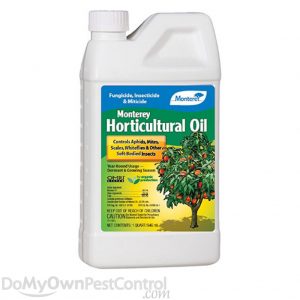 To some, it’s a desert topping, to others it’s a floor wax, but they are all “horticultural oil”. Different types of oil have been used for centuries to control insect and fungus type issues on plants. Horticultural oils still remain a tool to manage certain pest on trees and woody ornamental plants. Some can also be used on flowers, vegetables and herbs. Oils can also control some fungal issues such as powdery mildew. The two terms to remember are dormant oil and summer oil. They are different products and are not interchangeable.
To some, it’s a desert topping, to others it’s a floor wax, but they are all “horticultural oil”. Different types of oil have been used for centuries to control insect and fungus type issues on plants. Horticultural oils still remain a tool to manage certain pest on trees and woody ornamental plants. Some can also be used on flowers, vegetables and herbs. Oils can also control some fungal issues such as powdery mildew. The two terms to remember are dormant oil and summer oil. They are different products and are not interchangeable.
Most horticultural oils are highly refined forms of petroleum oil. However, some are made from cottonseed, garlic, fish, canola, soybean, neem and even rosemary. The good thing about the commercial oils is that most have an emulsifier added to allow them to mix with water. The advantages of horticultural oils include safety, effectiveness and a limited effect on beneficial insects. Disadvantages of using horticultural oils include being on the slow side to kill, potential plant damage from using the incorrect type of oil or applying it at an improper rate during the growing season. Horticultural oils also have a minimal residual to kill emerging pests.
Horticultural oils kill differently on different pests. The number one way they kill is to block the air holes through which insect’s breath, causing them to die from suffocation. They can also act as a poison by interfering with normal body functions. Horticultural oils can also disrupt how insects feed which in turn can slow or stop the spread of some plant diseases.
Weather conditions play an important part of the effectiveness of all horticultural oils. To avoid plant damage you must pick the right product for the task and follow the label directions. Rule of thumb is to apply dormant oils when plants have become winter hardened and temperatures are above 40f. Summer oils should be applied when it’s below 85f and under 90% humidity. I prefer evening application of summer oils.
At Wells Brothers we sell two types of horticultural oil, Hi-Yield Dormant Spray and Monterrey Horticultural Oil .To read more about using oils as pesticides, click here.





